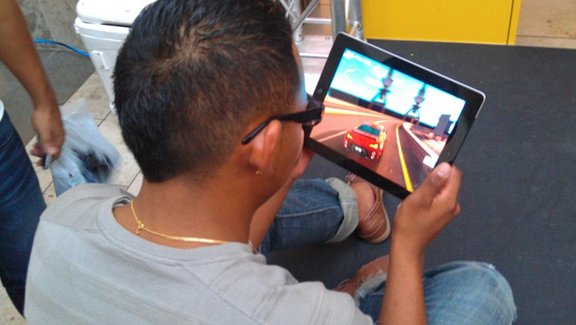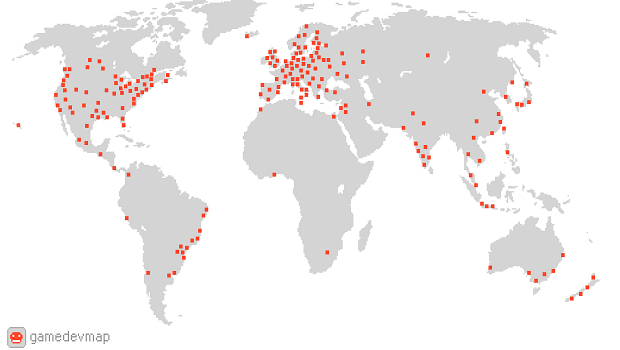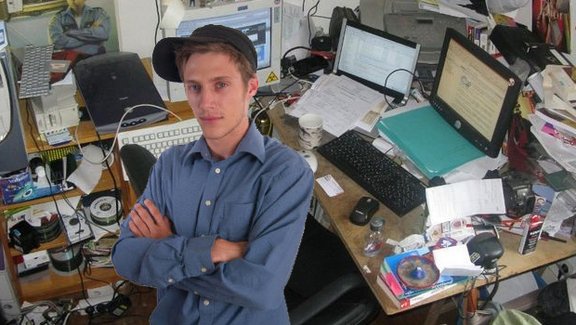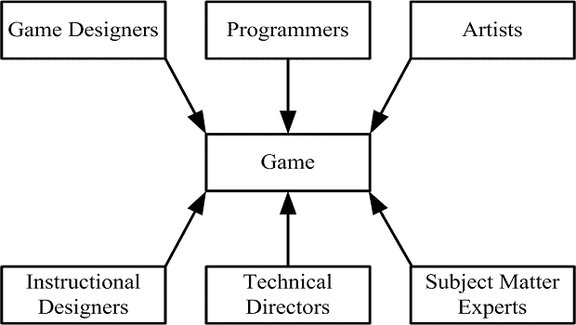Trending
Opinion: How will Project 2025 impact game developers?
The Heritage Foundation's manifesto for the possible next administration could do great harm to many, including large portions of the game development community.
A personal retrospective on the experiences and quirks I encountered while working in game development.

The following article was originally published on GamesRadar back in August 2013
So, you want to work in game development?
As a fan of video games, you’ve probably thought of working in development at some point. And why not? Turning your passion into your profession can result in a long and fruitful career. Needless to say, video games are amazing and you will have amazing experiences if you work in game creation. Still, before sending out your resume to your favorite studio (or trying to make it on your own as an indie dev), there are a few things you should know. That’s where this story comes in. Based on my experiences as a game tester and producer, I’ve listed down six lesser known realities in the game development profession, with the hopes of helping potential game industry folks make more informed career decisions.
1. Game playing is different from game testing

A lot of people see testing as a good way to break into game development, and it really is. One misconception, however, is that game testing is synonymous with normal game playing. This... definitely isn't the case. A player plays a game to enjoy the experience--a tester plays a game to find out if the experience is enjoyable. While the usual objective in gaming sessions is to progress or win, the objective when testing games is to check for crashes, progress blockers, and visual or typographical errors. Normal gaming sessions deal with playing games as its designers have intended; and this is a part of testing as well. A key differentiator in this regard is that in addition to checking if a game behaves accordingly, testing also deals with breaking the game and seeing if a game becomes buggy once the player decides to go against the game’s design.
2. It can be hard to work on a type of game you are not a fan of

You know you have that dream game you’d do anything to work on; the next AAA blockbuster or the next iteration of your favorite series. But what happens if you have to work on a type of game you don’t really like? It can be a genre that doesn’t interest you, a device you don’t want to use for gaming, or a business model you’re not a fan of. The sad part? It's bound to happen sooner or later. It can be frustrating and your motivation may drop, especially if you choose to work development because you’re passionate about games you enjoy playing. Imagine being a fan of Uncharted or Metal Gear Solid and having to work on My Babiez Adventure Day; or being a Bejeweled diehard and then having to test Medal of Honor. Ideally, a mismatch of interests and motivations wouldn’t exist but like in other industries, not everything in game development is an ideal scenario (more on this in the next entry).
3. Your country/location is a big factor in the games you can/will be able to work on

See the map above? It’s a map of game development organizations from gamedevmap.com. The map marks areas where development studios and publishers (working across all genres and platforms) are located. As you can see, video game organizations aren’t widespread around the world and are concentrated on several areas/regions, with the US/Canada, Europe, and Japan having the greatest proliferation of game development institutions. Because of how sparse game dev studios are in some areas (non-existent in many) and how concentrated they are in other countries/regions, it’s safe to say that your location will play a big factor in the game you’ll be able to work on unless you go indie. If you’re in the US/Canada, EU, or Japan, you can potentially work on games from any type of genre (console/PC, mobile, etc.) as there are a lot of studios/publishers in the said areas. If you hail from a country outside of those three regions, your options more limited. For example, most studios in Southeast Asia will offer the opportunity to work on casual/mobile games and little else--good luck shacking up with a AAA developer in Malaysia.
4. Level of professionalism in game industry folks is... varied

I've worked with different kinds of people (of different nationalities) during my tenure in the game industry. I've had co-workers who were very mannerly and professional; and I've also worked with people who had little to no semblance of professionalism. I subscribe to the idea that professionalism, for the most part, is conducting yourself in the workplace and interacting with coworkers in a respectful and considerate manner. In the game industry, where a loose and informal working environment is usually fostered, professionalism ranges from having articulate discussions to wondering how your co-worker manages to converse outside the office and not get beat up by strangers. And while the level of professionalism varies in other industries as well, the loose and informal nature of the development environment (non-traditional office attire, more relaxed and playful) makes the degree of professionalism even more varied. For some of you, this might be a godsend (you can grow a beard and wear Dr. Who t-shirts most days), but for others, this could be a deal breaker.
5. A good game producer is hard to come by

A producer needs to have relevant knowledge or experience in both technical and creative aspects of game development; and has to have management skills as well. I say that a good game producer can be hard to come by not because there aren’t a lot of good producers, but because the role varies so from company to company, from project to project, or from situation to situation; and not all producers can adapt or excel in all possible scenarios. It’s a jack of all trades, master of none kind of job that puts people through many different situations (build submissions, art reviews, playtesting, planning and scheduling, budgeting, etc.). Producers who were previously game designers, testers, artists, or programmers may have excellent knowledge and experience in their craft but may not possess the necessary know-how in development aspects outside of their expertise. It can be amazing or terrible, and you won't even know right away.
6. Being passionate about games and passionate about game development aren't always the same thing

Sure, you love playing games, but do you think you’ll also enjoy taking part in creating them? This is a key question to ask oneself when considering working in the game industry; as there’s a very important distinction between the consumption and creation of video games. While you may relish playing through games and appreciating the many elements that comprise it (art, game mechanics, music, story, etc.), you must also be a natural creator/builder and someone who is passionate about the creation process (coding, making art, writing design/story, etc.) to appreciate working in game development. You might describe yourself as a gamer but do you see yourself as a game designer, or an artist, or a programmer, or a producer? These are some of the specialized roles that function together as a video game is developed. Just because you like sausage doesn't mean you want to see how it's made.
Want to work in game development?
Working in the games industry is fun until it isn’t. It’s enjoyable until it isn't. And you’ll be passionate until you aren’t. The key is to really know if game development is a good fit for your knowledge and skills, your personality, and your motivations. By doing so, you’re making sure that you make the right career decision.
Do you also have any game industry experiences you want to share? Sound off in the comments section.
Read more about:
BlogsYou May Also Like